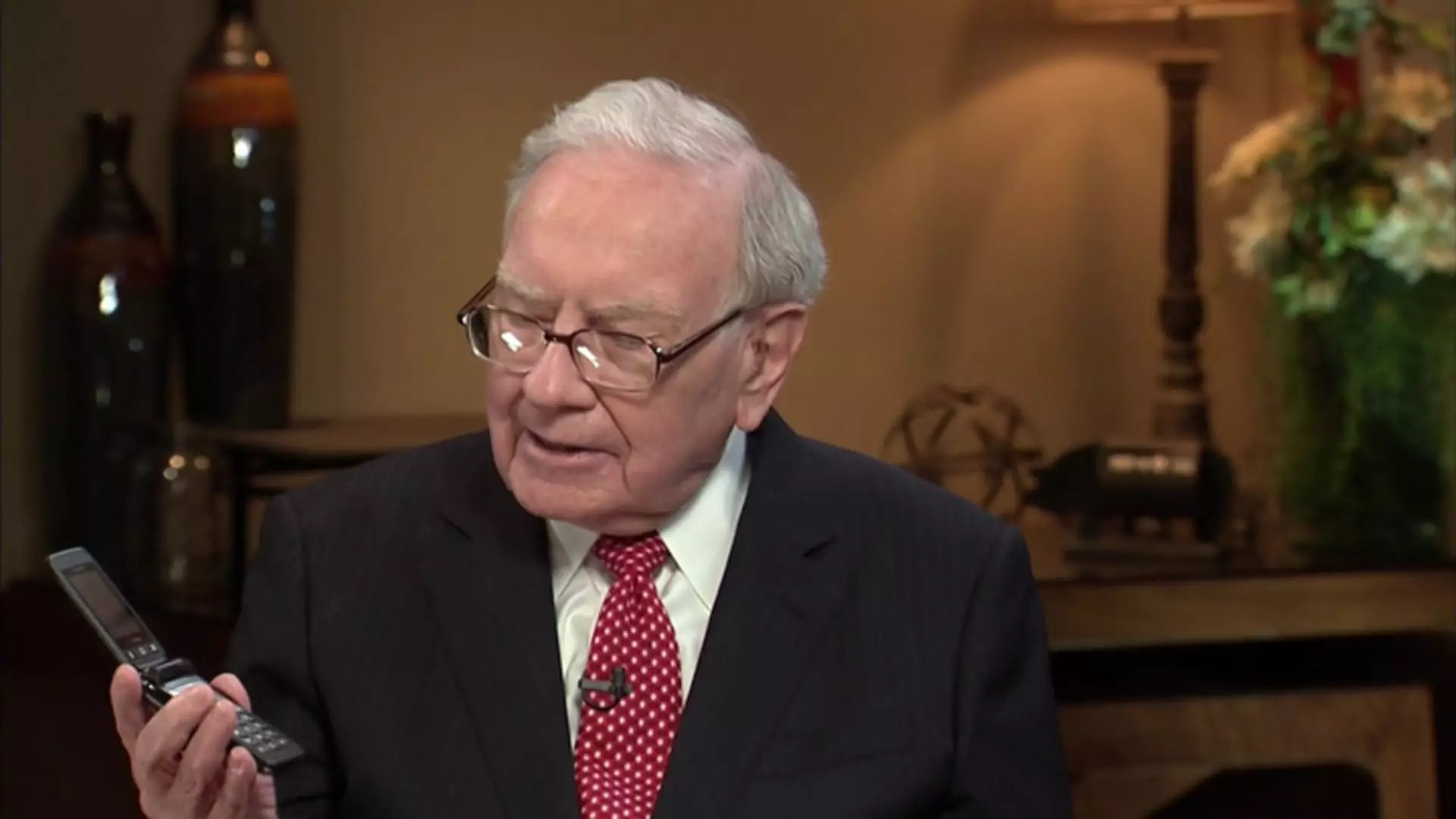Artificial intelligence (AI) is revolutionizing numerous industries, and finance is no exception. With the rise of advanced AI tools, investment firms are trying to leverage this technology to mimic some of the most successful investment strategies in history. One ambitious project, led by the startup Intelligent Alpha, aims to channel the investment philosophy of none other than Warren Buffett, the revered CEO of Berkshire Hathaway. This article explores Intelligent Alpha’s innovative approach and its potential implications for investors.
Intelligent Alpha is preparing to launch an exchange-traded fund (ETF) named the Intelligent Omaha ETF, represented by the ticker AIWB. This venture seeks to construct a portfolio of 25 to 30 stocks that reflect Buffett’s investing strategies. By employing cutting-edge AI technology, the firm hopes to distill Buffett’s investment philosophy into a replicable model. Instead of relying solely on human intuition, which has often failed to capture Buffett’s intricate reasoning, AI could potentially offer an analytical framework that is both comprehensive and data-driven.
The first step in this groundbreaking endeavor is feeding AI with a substantial trove of information that encapsulates Buffett’s paradigms. This includes his annual letters to shareholders spanning decades, public interviews, statements, and regulatory filings that provide insights into Berkshire’s stock holdings. Doug Clinton, the CEO and founder of Intelligent Alpha, believes that supplying AI with carefully curated data will enable it to “play the role” of Buffett effectively. However, there remain critical questions: Can a machine truly grasp the nuanced investing style that has evolved over Buffett’s prolific career?
Warren Buffett’s investment journey is not just a straightforward path; it reflects decades of adaptation and learning. Early in his career, Buffett focused on undervalued stocks—often described as “cigar-butt” investments that provided quick returns. Over time, however, he transitioned to prioritizing high-quality companies with strong competitive advantages, often referred to as having “wide moats.” This evolution reflected not just changing market dynamics but also a deepening appreciation for fundamental value investing principles, influenced significantly by his partnership with Charlie Munger.
The AI learns from past data, yet it fundamentally operates differently than a human investor does. While it can analyze vast amounts of historical data to make inferences, it may lack the personal intuition and emotional intelligence that Buffett has built over years of experience. Furthermore, the recent growth of Berkshire Hathaway’s market value—nearing $1 trillion—poses another challenge. With a larger portfolio, the company has fewer opportunities available to make substantial market movements; thus, the idiosyncrasies of Buffett’s decision-making become even harder to imitate.
Intelligent Alpha has spent the last six months testing its AI-driven investment approach, and preliminary results suggest that the portfolio crafted by the AI could overlap with Berkshire Hathaway’s holdings by 30 to 60%. While the potential for similarity exists, the weighting of these stocks might differ significantly. This divergence could lead to unique investment opportunities that set AIWB apart from direct investments in Berkshire’s portfolio.
Moreover, the Intelligent Omaha ETF is not the only AI-focused investment vehicle under Intelligent Alpha’s belt. The firm has previously launched the Intelligent Livermore ETF, which attempts to mirror the investment methodologies of notable investors like Stanley Druckenmiller and David Tepper, highlighting a broader trend where investment management is increasingly integrating AI.
The clamoring for AI in finance can be attributed to its ability to process information far more rapidly and accurately than human investors. Yet, as is often the case with cutting-edge technology, there exists a level of skepticism regarding its long-term viability. Critics argue that while AI excels in analyzing patterns, it might miss the subtleties that characterize human judgment.
Doug Clinton envisions Intelligent Alpha as a significant player in AI-fueled asset management, perhaps even striving to become the “AI-powered BlackRock.” Whether or not Intelligent Alpha achieves this ambitious goal remains to be seen. Still, the launch of the Intelligent Omaha ETF will undoubtedly provide invaluable insights into the complex interplay of human intuition and artificial intelligence in investing.
As AI continues to disrupt traditional investment paradigms, one question lingers: can machines truly capture the essence of legendary investors like Warren Buffett? The forthcoming ETF might just hold the answer, setting the stage for a new era in the evolution of investment strategy.

